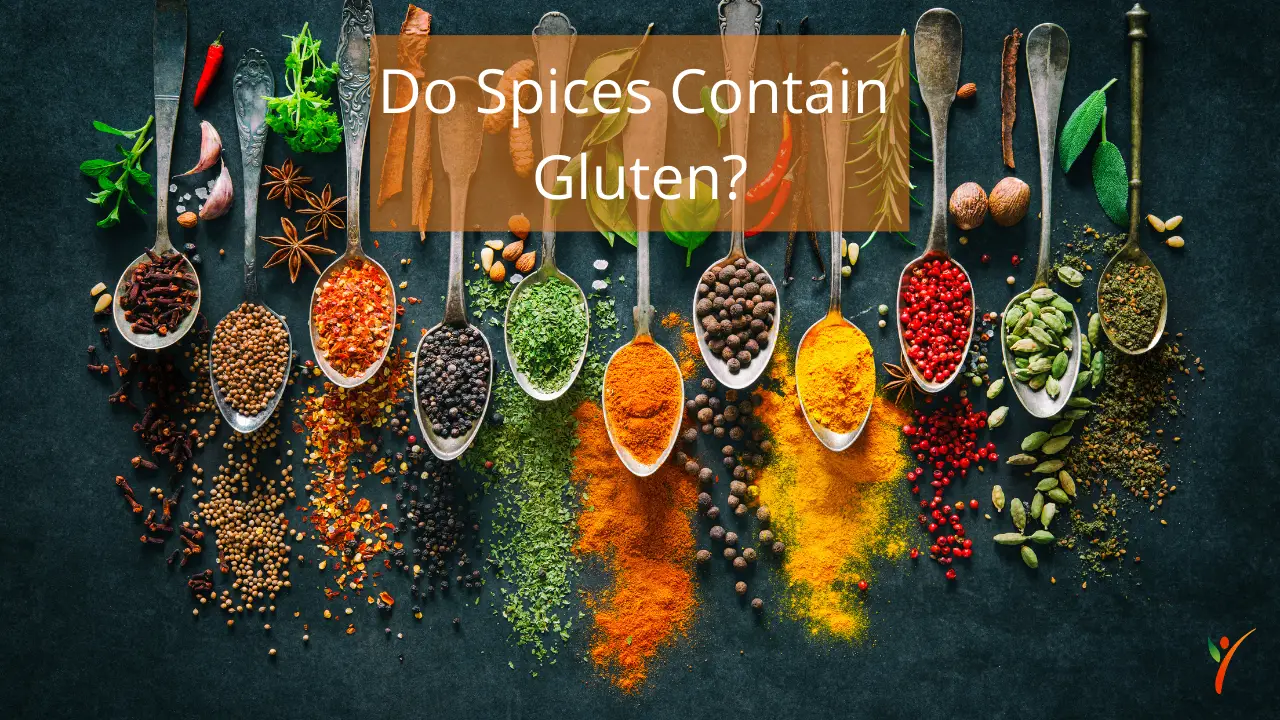Eating a gluten-free diet has become more prominent in recent times. And maybe because of the many celebrities, advertisements, and social media trends that strongly advocate it. But have you wondered how safe or useful this gluten-free diet trend is?
You need to analyze and study the effects of going gluten-free despite not being a celiac patient. And if you think your body would suit well to the gluten-free diet, you may start your journey after consulting your doctor to be safe.
Now when you have consciously chosen to go gluten-free, you must follow the diet well to see the maximum effects.
Gluten can creep into your diet very stealthily if you are not careful. You may not even realize it, but your kitchen may contain food and ingredients with loads of gluten.
We remember to keep careful tabs on the packaged foods and major food items as a whole but tend to forget minor ones like spices. Have you given a thought to the possibility of whether there is gluten in spices?
Given the various ingredients manufactured in the same facility as the gluten-containing items, there could be a possibility of finding gluten in spices. If you are unsure whether your spices are safe and free from gluten, please read on.
Gluten in Spices
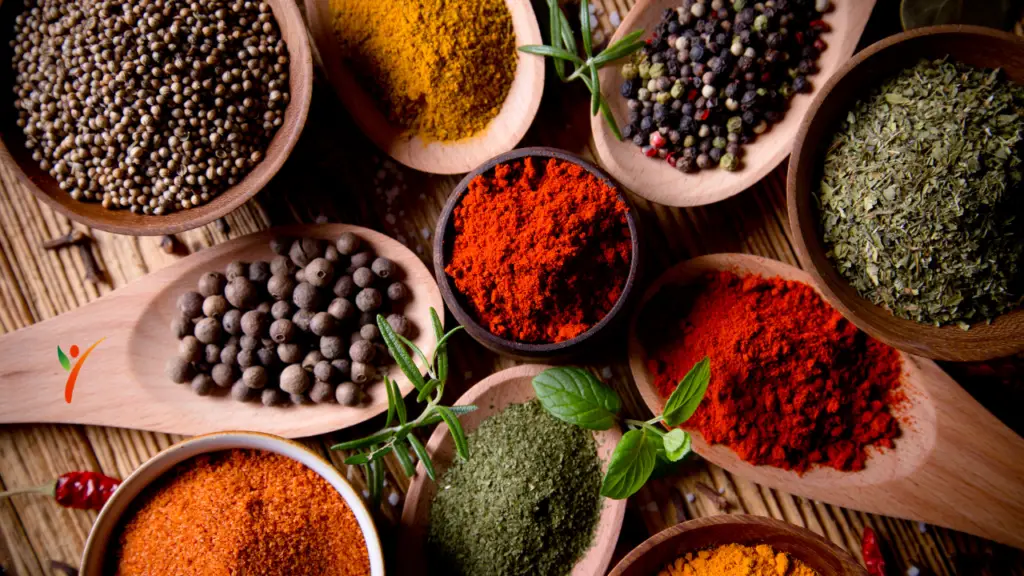
While it is an essential part of most cultures, spices are an integral part of any food irrespective of its culture. They determine the flavors of your food. You can not risk neglecting the contents of your spices.
Did you know that herbs and spices in their natural form are gluten-free? But there can be gluten in any spices. It happens because some extra agents have been added to them. For example, anti-caking agents like calcium silicate or silicon dioxide have been added to enhance their effectiveness and prolong their shelf life.
If these anti-caking agents are not gluten-free, your food is very likely to get contaminated with gluten. Causing you to disrupt your gluten-free diet, or worse, cause health complications if you have celiac disease.
Although it does not happen very often, one cannot rule out the possibility that spices can get contaminated in any way and from any source.
At times, manufacturers cheapen their costs of manufacturing. They may mix some amounts of wheat flour or starch, which thus reduces the costs.
Studies Regarding Spices In Gluten
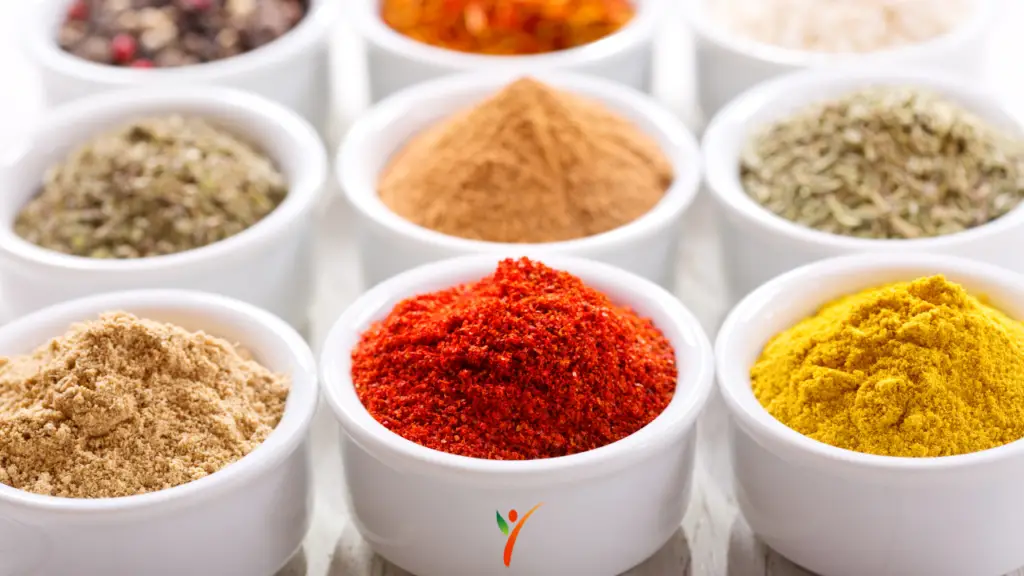
The fact that spices are contaminated depends on where they get manufactured. There can be cross-pollution or contamination when the batch of spices contact any gluten source if processed in the same facility.
To study gluten in spices, the Canadian Food Inspection Agency or CFIA conducted a study in 2013.
- In this study, they took 268 samples of both domestic and imported ground spices. To get the optimal results, they collected these ground spices samples from the retailers themselves.
- The results showed that 63 of the 268 or 24% of the collected samples had gluten amounts.
- Some had gluten as little as five parts per million, while the others had as much as 20,000 parts per million. Out of these 63, which were evident to have gluten, the number of domestic ones was only five, leaving the rest imported.
- These spices would not pose any health risk to a regular person who does not have celiac disease.
- But if you have celiac disease and consume gluten-containing spices, especially those with high amounts of gluten, it would cause your diet to go haywire.
If a person consumes those spices in a meal and has celiac disease, it may risk their health.
How To Avoid Spices That Have Gluten
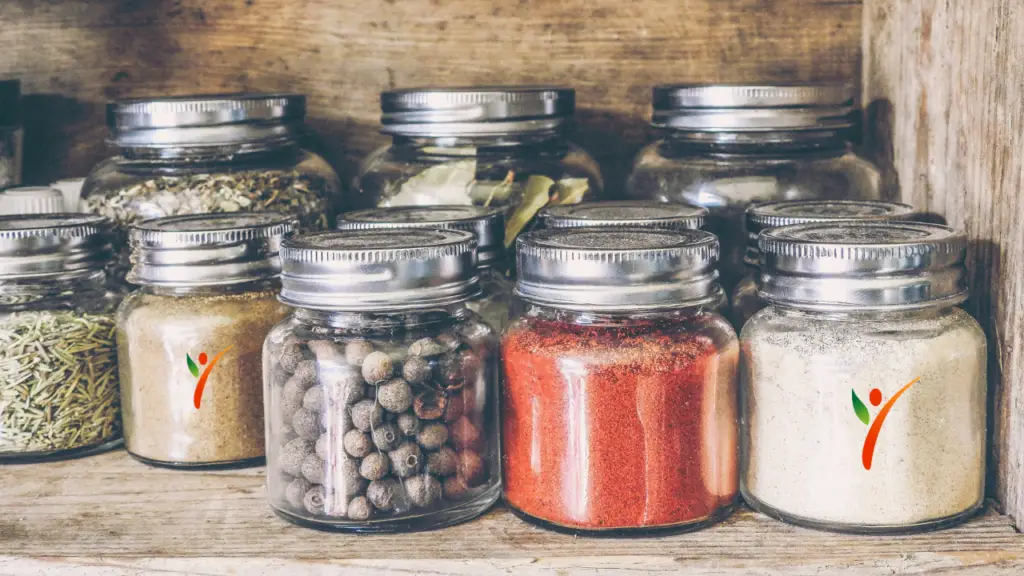
If you consume not only individual spices but “seasonings,” you need to be extra careful. Seasonings are a mix of spices with some carrier agents and anti-caking agents as additives.
Ingredients like sugar, salt, flours, starch, or lactose can be used as carrier agents to enhance their flavor.
And if these flours are from wheat or rye, or wheat starch, there is sure to be gluten contamination. How can you avoid getting spices containing gluten, especially when you are on a gluten-free diet?
Here are some tips to avoid gluten-containing spices:
- Opt for spices from companies that specialize in gluten-free foods in general. Such companies have well-equipped facilities and manufacturing processes to make gluten-free foods. Hence, the possibility of the spices made in the same facility as the gluten-containing ingredients or foods is significantly less.
- If you buy your spices from a wholesale or a bulk bin, that is a significant source from where gluten contamination can happen. The scoops for different spices or other ingredients may get mixed and thus give way to gluten contamination.
- Be careful about imported spices. The imported spices tend to contain a lot of gluten unless otherwise specified because the levels of gluten allowed in food may vary from one country to another. While one class of gluten content may be considered safe in one country, the same level may not be allowed in another country.
- Remember always to check food labels. The spices contain labels, and you must make sure that you specifically look for a gluten-free sign on them. If you ignore the labels, you will never know what kind of spices you are buying and if they contain gluten.
But have you also wondered if gluten-free spices are the best, or do gluten-containing ones hold some benefits too? Or why should you continue to use gluten-free spices? Well, let us look at the benefits of gluten-free spices.
Benefits Of Gluten-Free Spices
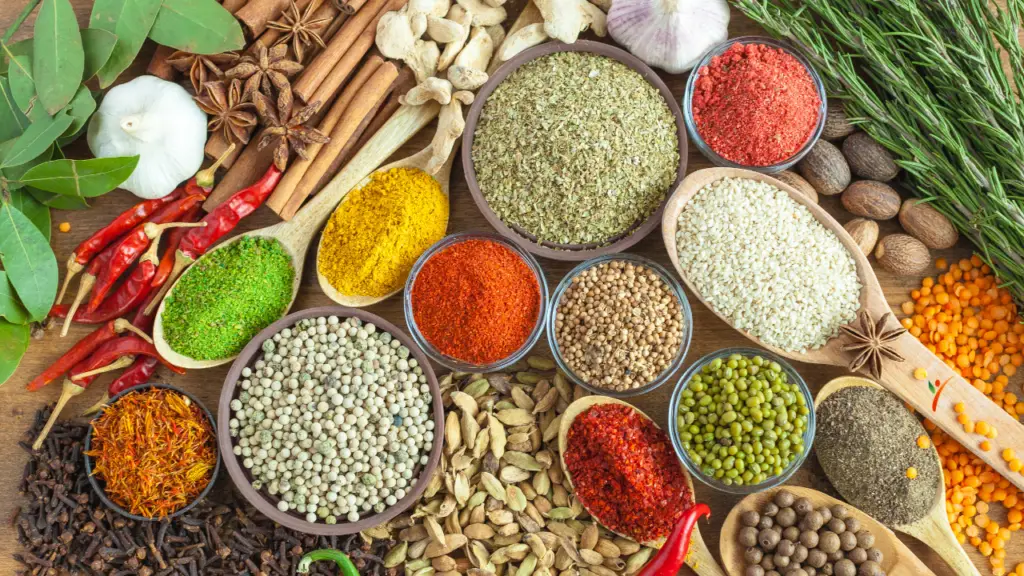
There are many pros and cons of gluten in spices. But majorly, the pros of the spices being gluten-free are way more. We have a few reasons why you should opt for gluten-free spices.
Reduces Bloating
Gluten is infamous for being something that is a major cause of bloating. Even if you are on a gluten-free diet or avoid gluten-containing food altogether, gluten may creep in from anywhere.
And if your spices have gluten, the amounts of gluten with each meal increase and eventually cause bloating. That is why it is best to buy spices that are gluten-free so that you genuinely stay gluten-free.
Reduces Headaches
Headaches are also one of the prominent symptoms that gluten causes. It may not happen to everyone, but it is best to avoid gluten-containing spices if you have celiac disease or gluten-intolerance.
Especially if you are a celiac patient, you may be accustomed to the gluten-free life but may forget to be careful about the food's spices.
If you are prone to headaches frequently, you can help yourself by avoiding gluten-containing spices.
Less Risk Of Adulteration
We know that spices are mostly gluten-free in their natural form. They tend to get contaminated with gluten when mixed with other agents. So, if you opt for gluten-free spices, you are more likely to get pure ones and not adulterated ones.
The manufacturers that are adding wheat flours and starch and the likes cannot do so when the spices are supposed to be gluten-free.
So, it is a win-win for you to get pure spices even if they cost more money and avoid tampering with your gluten-free diet.
Gluten-Free Spice Mix
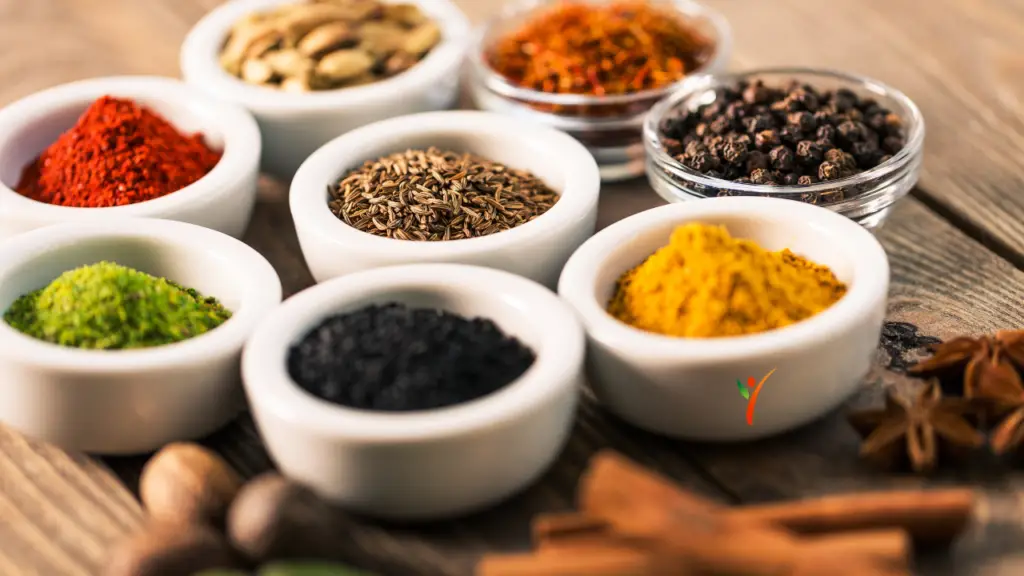
The best way to be sure that your spices or a spice mix are gluten-free is to make it yourself! Yes, it is possible. You only need a little background information on the variety of spices you need to put into this blend of spices.
Using a spice mix will doubly enhance the flavor of your food and make it even more delicious.
Here are the spices you will need to make a spice mix on your own. Understand the health benefits associated with each of them, and the blend will seem even more appealing.
Parsley
Parsley is a common herb used in the preparation of many foods. You may either use it in salads or as a lovely garnish over different dishes. This herb is beneficial as it helps in boosting your immunity and detoxifies your body.
It can also be used as a diuretic and is excellent for your kidney functions.
Turmeric
Turmeric is one spice that is abundant in Indian cuisines. The beneficial properties of turmeric make it one of the best spices for your health. It's not only an antioxidant, but it is also anti-inflammatory.
It is known to fight against tumors and improve blood circulation. You should include turmeric in your food for better immunity.
Rosemary
Rosemary is another herb that has antioxidant properties. The fragrance of the herb enhances the flavor of the food even more. It is known to protect the tissues in the body from free radical damage.
It is an excellent herb for regulating digestion and blood circulation.
Fennel seeds
Fennel seeds are the best for digestion because they are rich in dietary fiber. Around 100g of fennel seeds contains about 39.8 g of fiber.
If you suffer from issues like constipation, consuming a small number of fennel seeds will help.
Fenugreek
Fenugreek is beneficial in improving your bone and joint pain problems. It also has incredible amounts of fiber to aid the digestion process.
Cayenne
Cayenne helps in regulating the blood flow to the most peripheral parts of the body. It also helps the body in absorbing the maximum amounts of nutrients from the food we consume.
The much-needed flavor comes majorly from Cayenne.
A blend of all these spices in a proportionate amount will create an excellent spice mix. You can use this in any way you want. The best part is how this mix can be extremely affordable and completely gluten-free.
But before you choose to make this mix, it would be best if you consult with your doctor regarding the same. If you are on any medication, then some of the spices or herbs can hinder it.
Consuming any food or ingredients while being on medication, without consulting the doctor, can be a risky thing.
Final Thoughts

If you have chosen to lead a gluten-free life, you need to take extra measures to ensure being completely gluten-free. For this, you must know that gluten can enter your body from any source, whether food, cosmetics, or even spices.
That is why you should always check the labels of even spices.
But the best option would be to make a spice mix on your own in batches to store. You can feel confident it is a safe product when you have made it yourself.
Choosing a gluten-free life may not always be easy, but it can be rewarding. Even if you medically do not need to go gluten-free, you can give it a shot after consulting your doctor, and you will notice that you feel better.

